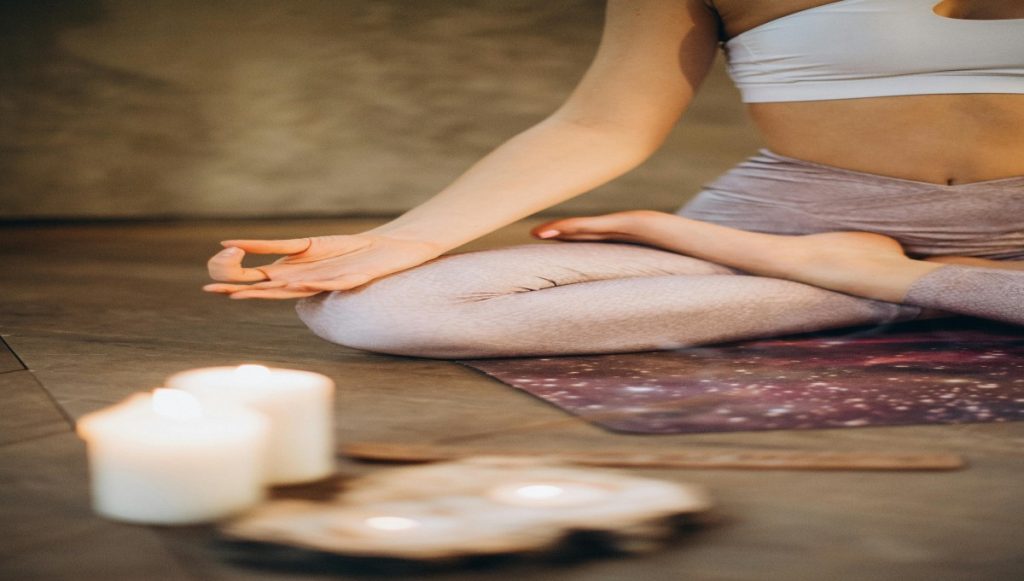After a long day at work, taking time to relax and unwind is crucial for both your mental and physical well-being. When the pressures of deadlines, meetings, and responsibilities weigh on you, it’s easy to carry stress into the evening, which can affect your mood, health, and even your sleep.
The good news is that with a few simple activities, you can establish an after-work routine that helps you relax, de-stress, and recharge for the next day.
Here’s a detailed look at 8 relaxing activities that you can incorporate into your evenings to unwind after work and create a peaceful end to your day.
1. Practice Meditation and Mindfulness

Meditation is one of the most effective ways to clear your mind and reduce stress after a busy day. This practice focuses on mindfulness—being fully present in the moment, letting go of the constant thoughts about work or life challenges. The great thing about meditation is that it requires very little time. Even 10 to 15 minutes can make a noticeable difference in how you feel, helping you center yourself and promote emotional calm.
How to Get Started:
- Find a quiet space in your home where you won’t be disturbed.
- Sit comfortably on the floor, on a chair, or even lie down.
- Close your eyes and take deep, slow breaths. Focus on each inhale and exhale, paying attention to the sensations in your body.
- If your mind starts to wander, gently bring your focus back to your breath.
- For beginners, guided meditation apps like Calm or Headspace can be helpful, offering structured sessions and teaching you the basics.
Benefits:
- Reduces stress and promotes relaxation.
- Improves concentration and emotional stability.
- Enhances self-awareness and overall well-being.
2. Take a Leisurely Walk or Engage in Light Exercise
When you’ve spent the day sitting at a desk or standing for long hours, getting some light exercise or going for a leisurely walk can help you unwind. Exercise, even if it’s mild, releases endorphins—your body’s natural “feel-good” hormones—which can elevate your mood, reduce stress, and improve your overall sense of well-being.
How to Incorporate It:
- Take a 20-30 minute walk after dinner to clear your mind. Choose a park, neighborhood path, or somewhere close to nature if possible. Walking in a peaceful setting can help you disconnect from the pressures of the day.
- If walking isn’t your preference, try a gentle yoga routine or stretching exercises. Yoga is great for both mental and physical relaxation, allowing you to release any tension you may have accumulated in your body.
- If you have a pet, taking your dog for a walk can also serve as a calming end-of-day activity while giving you some much-needed time outdoors.
Benefits:
- Increases circulation, reducing tension in your muscles.
- Helps improve your mood and clear your mind.
- Boosts creativity by allowing your mind to wander during a walk.
3. Enjoy a Relaxing Bath or Shower
There’s something incredibly soothing about a warm bath or shower at the end of a stressful day. The warmth helps relax tense muscles and can signal to your brain that it’s time to unwind. For an even more calming experience, add elements like essential oils, candles, and soft music to create a spa-like atmosphere in your own home.
How to Elevate the Experience:
- Add essential oils to your bath or shower routine. Scents like lavender, chamomile, or eucalyptus are known for their calming properties and can enhance the relaxation process.
- Light candles or use a diffuser with calming scents to set the mood for relaxation.
- Consider adding Epsom salts or a luxurious bath bomb to your bath. These can help further relieve muscle soreness and promote a sense of calm.
Benefits:
- Soothes tired muscles and reduces physical stress.
- Prepares your body for restful sleep.
- Promotes a calming environment to help you wind down.
4. Unplug and Read a Good Book

If you’re looking for a way to unplug from screens after a workday filled with emails and meetings, reading a good book can be an excellent escape. Immersing yourself in a book allows your mind to focus on something other than work, reducing stress and stimulating your imagination. Whether it’s a gripping novel, a self-help book, or a memoir, reading can be a refreshing way to end the day.
How to Make Reading a Regular Habit:
- Create a cozy reading nook in your home with comfortable seating, soft lighting, and maybe a cup of tea.
- Dedicate 30 minutes to an hour each evening to reading, whether it’s before bed or immediately after dinner.
- Choose books that interest you, whether fiction or non-fiction. You’re more likely to stick with the habit if you genuinely enjoy what you’re reading.
Benefits:
- Reduces screen time, which helps ease eye strain.
- Stimulates creativity and cognitive function.
- Helps calm your mind and improves focus.
5. Explore a Creative Hobby
Engaging in a creative hobby can be a fulfilling and relaxing way to spend your evening. Creative activities allow you to focus your energy on something enjoyable and productive. Whether you enjoy drawing, painting, knitting, or even baking, hobbies can provide a great outlet for stress relief and personal expression.
How to Find a Hobby You Love:
- Think about the activities that have always interested you, but you’ve never had time to try.
- Experiment with different hobbies until you find one that you look forward to after work. This could be anything from photography, cooking, or gardening, to playing a musical instrument.
- Start small and don’t pressure yourself to be perfect. Remember, the point is to enjoy the process, not the end result.
Benefits:
- Provides a creative outlet for relaxation and personal expression.
- Increases your sense of satisfaction and happiness.
- Boosts problem-solving skills by encouraging you to think outside the box.
6. Listen to Calming Music or Podcasts
Music can have a profound effect on your mood, making it one of the most effective ways to relax after work. Put on some calming instrumental music or soothing nature sounds to help you transition from work mode to relaxation mode. If you prefer spoken word, podcasts that are lighthearted or focused on personal growth can be a relaxing way to wind down.
How to Incorporate Music and Podcasts:
- Create playlists of calming music or nature sounds that you can listen to during your evening wind-down routine.
- Find podcasts that cover interesting, light topics that don’t require too much mental energy, like storytelling, lifestyle, or self-care tips.
- Use a Bluetooth speaker or good-quality headphones to enhance the sound and experience.
Benefits:
- Reduces stress and enhances emotional well-being.
- Helps create a relaxing environment without the need for visual stimulation.
- Increases your sense of calm, preparing your mind and body for rest.
7. Journal or Reflect on Your Day

Journaling is a great way to reflect on your day, process any lingering thoughts or emotions, and set intentions for tomorrow. It can be a tool for clearing your mind, focusing on gratitude, and identifying any stressors you might want to address. Whether you write freely about your thoughts or follow prompts, journaling helps release the mental tension you may have carried home from work.
How to Start Journaling:
- Set aside 10-15 minutes each evening to write about your day, your goals, or things you’re grateful for.
- If you’re new to journaling, try guided prompts like “What went well today?” or “What did I learn today?” to help you get started.
- Use it as a time to process your emotions, reflect on what went right, and let go of what didn’t.
Benefits:
- Helps you de-stress by letting go of lingering thoughts.
- Promotes self-reflection and personal growth.
- Increases emotional awareness and gratitude.
8. Try Deep Breathing or Progressive Muscle Relaxation
Deep breathing and progressive muscle relaxation (PMR) are simple yet powerful techniques that can help you relax after a long day. By focusing on your breath or working through each muscle group, you can calm your nervous system and release physical tension that may have built up during the day.
How to Practice Deep Breathing and PMR:
- Sit or lie down in a comfortable, quiet space.
- For deep breathing, inhale deeply through your nose for four counts, hold for four counts, and exhale slowly for four counts. Repeat this several times.
- For progressive muscle relaxation, start from your feet, tense each muscle group for a few seconds, and then slowly release the tension as you move up your body.
Benefits:
- Lowers your heart rate and blood pressure, promoting relaxation.
- Relieves physical tension and helps you unwind.
- Improves sleep quality by calming your mind and body.
Conclusion
Unwinding after work is essential for maintaining a healthy work-life balance and ensuring you feel mentally and physically recharged. By incorporating these 8 relaxing activities into your evening routine, you can create a peaceful environment that promotes rest, reduces stress, and helps you feel refreshed. From mindful meditation to creative hobbies, find what works best for you and make relaxation a priority every day.

